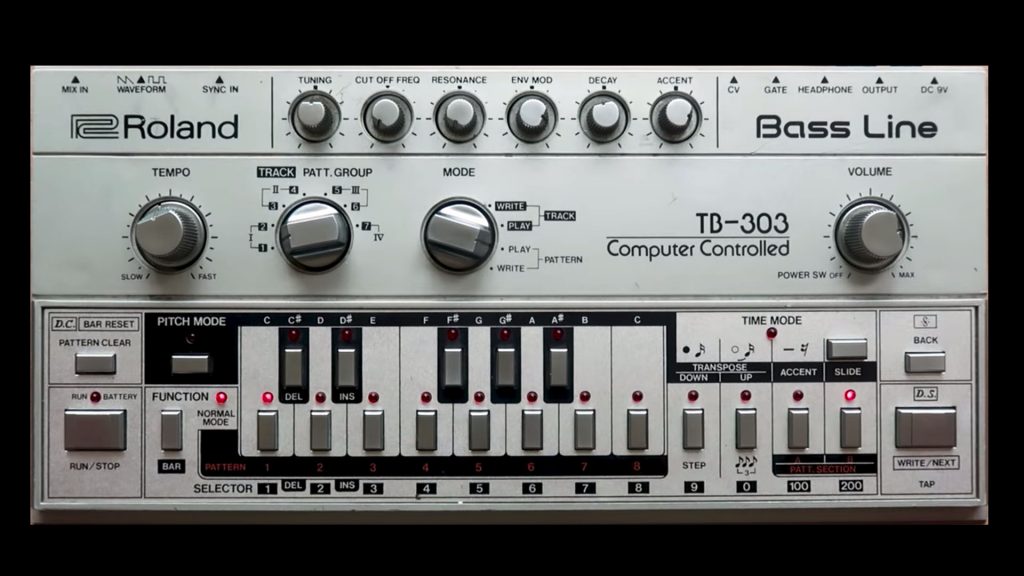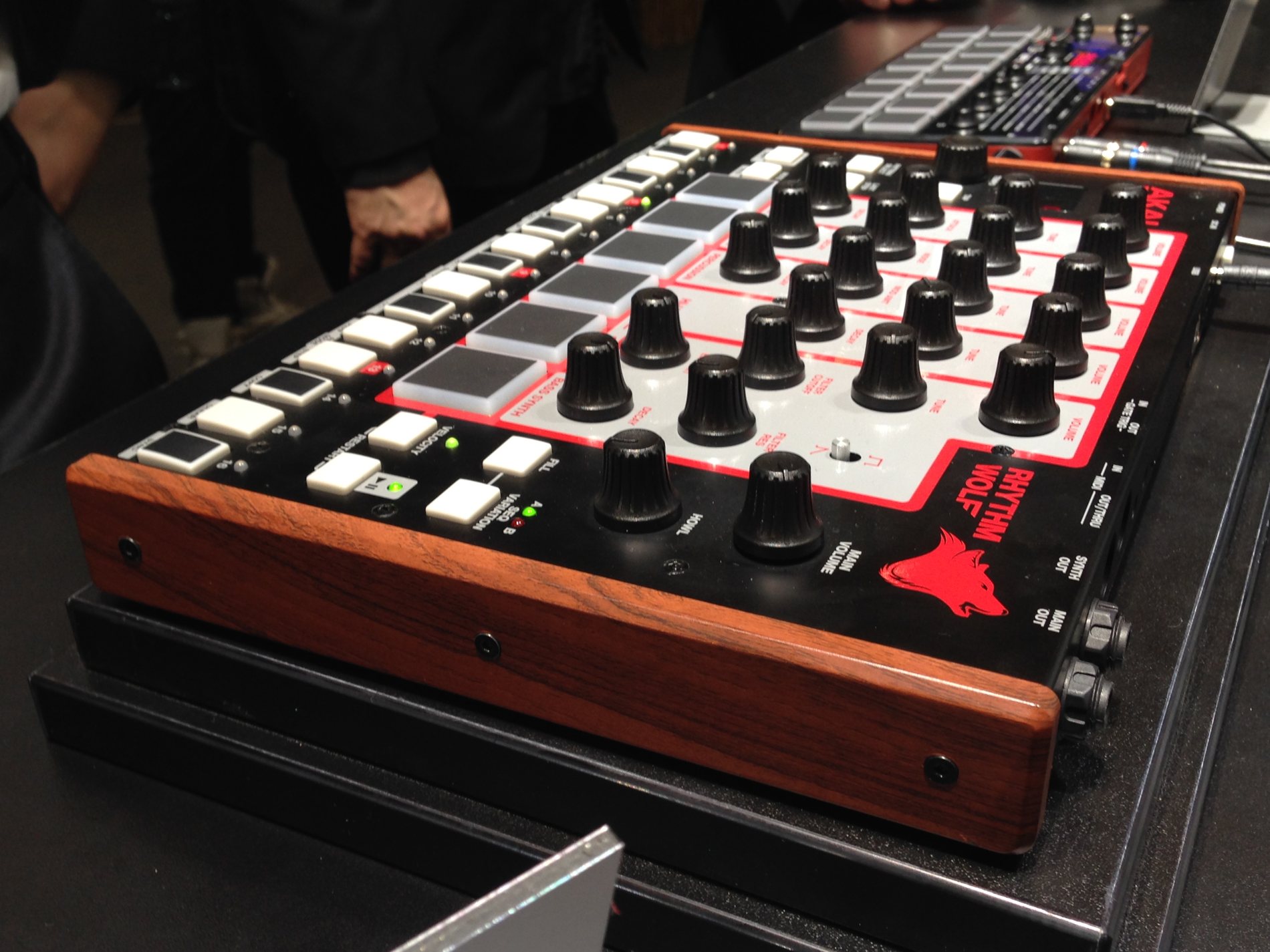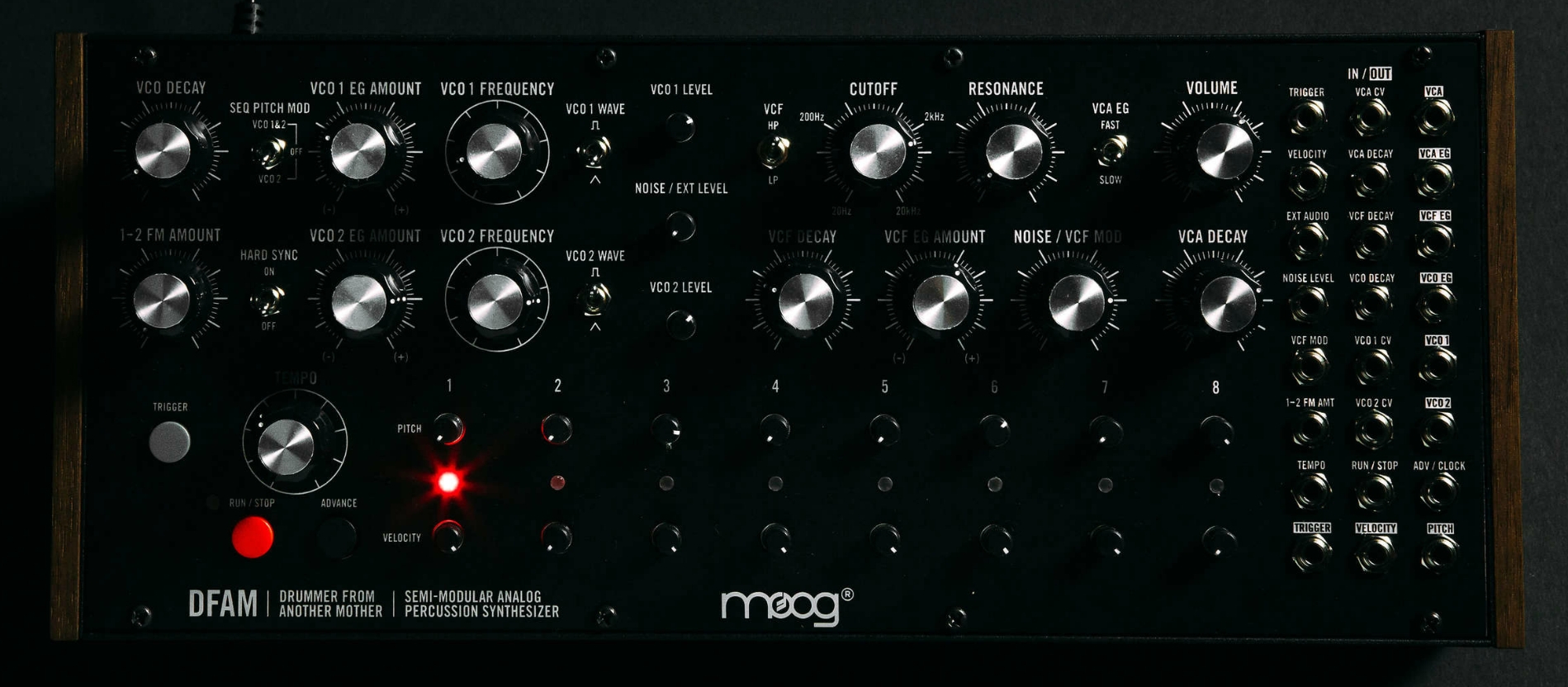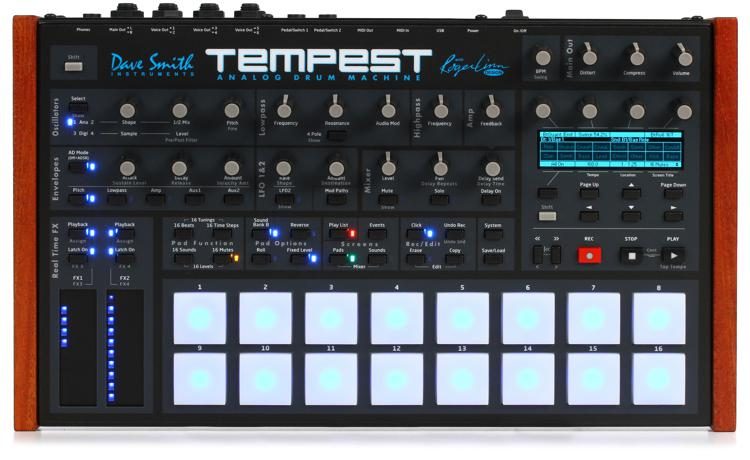
The Roland TB-303 Bass Line is a bass synthesizer released by Roland Corporation in 1981. Designed to simulate bass guitars, it was a commercial failure and was discontinued in 1984. However, cheap second-hand units were adopted by electronic musicians, and its “squelching” or “chirping” sound became a foundation of electronic dance music genres such as house and techno. It has inspired numerous clones.
The TB-303 was designed by Tadao Kikumoto, who also designed the Roland TR-909 drum machine. It was marketed as a “computerised bass machine” to replace the bass guitar. However, according to Forbes, it instead produces a “squelchy tone more reminiscent of a psychedelic mouth harp than a stringed instrument”.
The TB-303 has a single oscillator, which produces either a “buzzy” sawtooth wave or a “hollow-sounding” square wave. This is fed into a 24dB low-pass filter, which is manipulated by an envelope generator. Users program notes and slides using a built-in sequencer.
The 303’s unrealistic sound made it unpopular with its target audience, those who wanted to replace bass guitars. It was discontinued in 1984, and Roland sold off remaining units cheaply. Impact and legacy
“Rip It Up”, by the Scottish post-punk band Orange Juice, which reached #8 in the UK singles chart in February 1983, was the first UK top 10 hit to feature the 303.
Another early use of a TB-303 (in conjunction with a TR-808 drum machine) is Indian musician Charanjit Singh’s 1982 album Synthesizing: Ten Ragas to a Disco Beat. It remained obscure until the early 21st century, and is now recognized as a precursor to acid.
The Chicago group Phuture bought a cheap 303 and began experimenting. By manipulating the synthesizer as it played, they created a unique “squelching, resonant and liquid sound”. This became the foundation of “Acid Tracks”, which was released in 1987 and created the acid genre. Acid, with the 303 as a staple sound, became popular worldwide, particularly as part of the UK’s emerging rave culture known as the second summer of love.
In the late 1980s and early 1990s, as new acid styles emerged, the TB-303 was often overdriven, producing a harsher sound, such as on Hardfloor’s 1992 EP “Acperience” and Interlect 3000’s 1993 EP “Volcano”. In other instances the TB-303 was distorted and processed, such as on Josh Wink’s 1995 hit “Higher State of Consciousness”.
As only 10,000 units were manufactured, the popularity of acid caused a dramatic increase in the price of used 303 units. According to the Guardian, as of 2014, units sold for over £1,000. In 2011, the Guardian listed the release of the TB-303 as one of the 50 key events in the history of dance music. It has inspired numerous clones.



